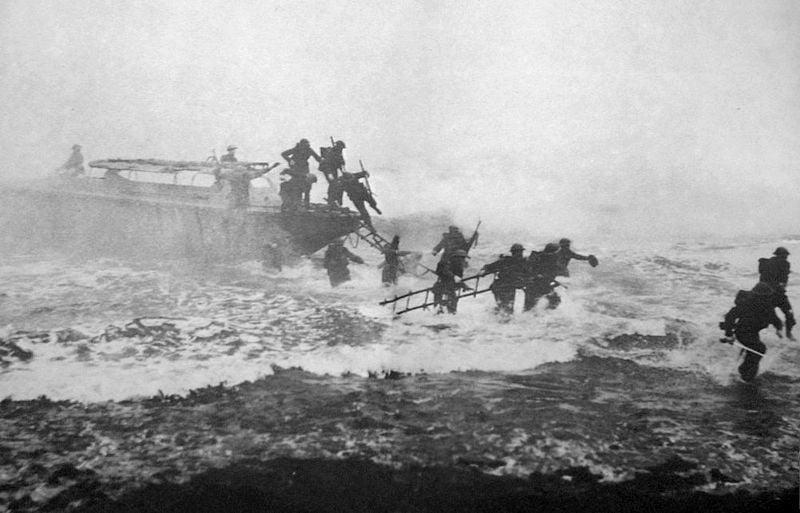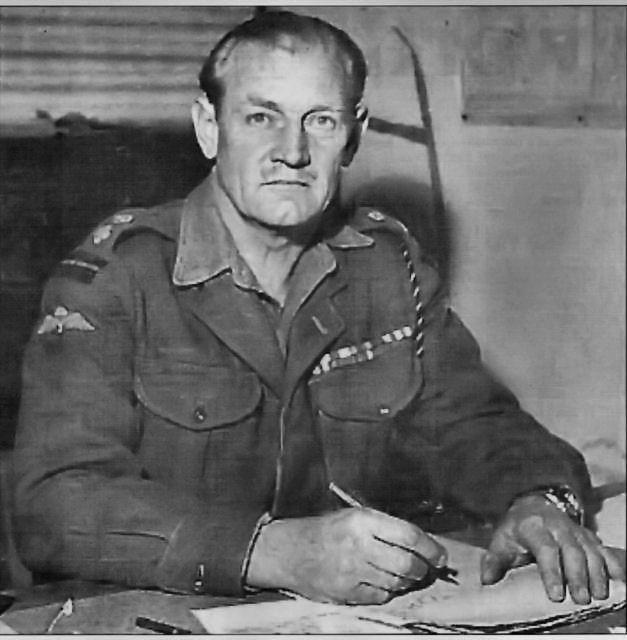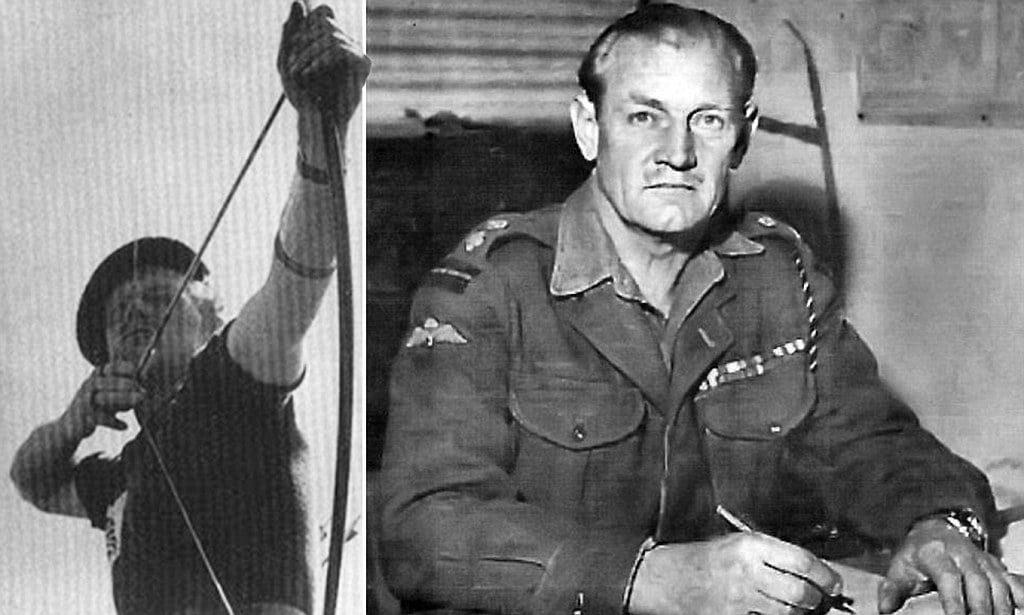Mad Jack is yet another character that entered history with his extraordinary actions. It was May 1940, and the British forces fighting in France were retreating towards the coastline. The German Blitzkrieg seemed unstoppable as the country was slipping away to the Nazi occupation. German troops’ morale was getting higher by the day.
It was evacuation time for the Allies, but one Englishman stood out proud and defiant. His name was Jack Churchill and what he did during the evacuations made history. But we’ll get to that.
Early life
Jack Malcolm Thorpe Fleming Churchill was born in the British colony of Ceylon in 1906. When he was eleven years old, his family moved back to England. In 1926, Jack graduated from the Royal Military College and served with the Manchester Regiment in Burma. Ten years later, he left the army and moved to Kenya.
At first, he worked as a newspaper editor, but that couldn’t quench his thirst for adventure for too long. Besides military action, he was passionate about motorbikes, bagpipes, and longbows.
Thus, he appeared in two movies, where he played bagpipes and shot arrows. His passions grew over the years, and in 1938 he won second place in a military piping competition, leaving many a Scot in awe. The next year, he was chosen to represent Britain at the World Archery Championship in Oslo.
British Expeditionary Force
The German invasion of Poland offered Jack a chance to reconcile all of his passions. In 1939, he rejoined the army and was sent to France as part of the British Expeditionary Force. He probably looked a bit like a looney in the eyes of his comrades while carrying a massive broadsword and longbow into action. Once asked about his unusual trademark, he would reply that “any officer who goes into action without his sword is improperly dressed.”
By May 1940, the Brits were retreating from France, but Jack Churchill moved in the opposite direction – attacking German positions and supply depots. After his company commander was wounded, he took over. His unit ensnared a German patrol, and Churchill gave an unusual signal to attack.
Standing on a tower, he shot the German sergeant right through his chest with a barbed arrow, which to this day remains the last instance of such a kill in combat. Well, it must have been the first in a very long time as well.
British Commandos
The following year, he volunteered as part of the newly formed British Commandos and was sent to Norway as the leader of Number 2 Commando. In December, he led an assault on a German position by playing The March of the Cameron Men on his bagpipes and then charging with his sword in hand, yelling “Coooommmmaaaaannnnddddooooo.” Two hours later, the Nazis surrendered.

Churchill’s old-school combat techniques stood out even more in Italy. One night in 1943, assisted by just one corporal, he captured 42 POWs, including a mortar squad, using only his sword. In 1944, the Commandos were helping Tito’s Partisans in Yugoslavia. In an unsuccessful attempt to take over the island of Brac, he was knocked unconscious by a German grenade, captured, and sent to the Sachsenhausen concentration camp.
One night he managed to escape but was caught and later transferred to Tyrol. As the war in the European Theatre was coming to an end, he was released. Immediately he headed off to fight in the Pacific, but by the time he got there, the nuclear bombs put an end to the Japanese resistance.

After World War II
After World War II, ‘Mad Jack’, as he came to be known, fought in British Palestine. He later served as an instructor at the land-air warfare school in Australia, where he fell in love with surfing. Upon returning to the UK, he became the first man to ride the River Severn’s five-foot tidal bore. He even designed his own surfboard.
In 1959, Jack Churchill retired from the army, with two Distinguished Service Order medals and countless stories to tell. He passed away in 1996, but his extraordinary legacy lives to this day. In March 2014, the Royal Norwegian Explorers Club named him one of the finest explorers and adventurers of all time.


Thanks, Nicki Roark for special-ops.org